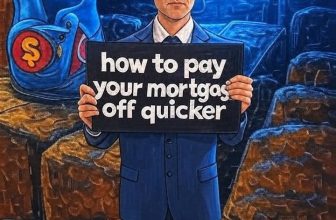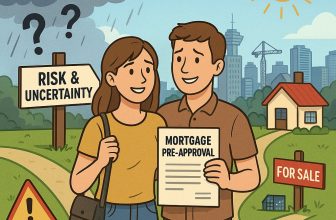(November 21, 2021)
Intro (pre-amble): up to 11:34 mark of podcast (Bank of Canada wavering on projected rate rise? | the ever expanding fixed-variable rate spread – its big | ditch general news, embrace sports and business news)
It’s not often that a homebuyer walks away from a home purchase with a few thousand discretionary dollars in their bank account (especially if you’re a first-time home buyer), and if they do it’s likely earmarked for various closing costs resulting from the transaction (i.e. legal fees, movers, property transfer taxes, etc).
But what if there was a way to tack on some additional funds to your mortgage after the seller was paid? With a cashback mortgage you can certainly achieve this!
Cash back mortgages kick back a percentage of your closing date mortgage balance directly to your personal bank account – and there are absolutely no restrictions on how you can spend the money.
The Mortgage Cash Back Ladder: (for a $500,000 mortgage)
1.0% cash back ($5,000) = 2.89% 5 year Fixed Rate, or 1.45% Variable Rate
1.5% cash back ($7,500) = 3.04% 5 year Fixed Rate, or 1.50% Variable Rate
2.0% cash back ($10,000) = 3.19% 5 year Fixed Rate, or 1.60% Variable Rate
3.0% cash back ($15,000) = 3.49% 5 year Fixed Rate, or 1.85% Variable Rate
5.0% cash back ($25,000) = 3.94% 5 year Fixed Rate, or 2.35% Variable Rate
Here are some smart and useful ways to get the most bang from your cash back proceeds:
- pay all or a portion of your closing costs (property transfer tax, legal fees, home inspection, movers, etc)
- use the proceeds to suit up your new place (furniture, new appliances, etc.)
- begin work on any renovation or home improvement projects (new paint, kitchen, bathroom, etc.)
- pay off high interest debt (credit cards, lines of credit, etc)
- invest the cash back proceeds in investments (rrsp, tfsa, stocks, etc)
- …basically, you can do whatever you desire with the proceeds
But what’s the catch?
Here are the key fine print conditions to be aware of when signing up for a cash back mortgage:
- be aware that you are getting an interest rate that is higher than what you would have received on a mortgage without a cash back component. The difference in rate depends on how much cash back proceeds you are opting for (see “The Mortgage Cash Back Ladder” above)
- be aware that all (or a scaled portion) of the cash back proceeds will be owed back to the lender if you discharge your mortgage ahead of its maturity. Not only would you be subject to the standard payout penalty of breaking a mortgage ahead of its maturity, but also the balance of the cash back proceeds, as well (heads up!). But if you ride out the term to its maturity, you are safe – no penalties! For example, let’s say you secured a cash back mortgage for a 5 year fixed term of $500,000 with a 3% cash back of $15,000. If you broke the mortgage ahead of its maturity (let’s say 2 years in to a 5 year term), you would be charged the standard penalty of ~$4,000 (this is just an estimate and best case break penalty scenario) and as much as the full $15,000 may need to be returned to the lender (this is the absolute worst case scenario as some lenders will rebate the portion you have maintained during your current term, and fewer will outright forgive the entire cash back proceeds all together!). So, you could potentially have a total penalty of ~$19,000. But if you ride it out for the entire term (5 year), you will not owe anything…you can then simply renew into another term or even switch to another lender without any fees or penalties.
Contact Marko, he’s a Mortgage Broker!
604-800-9593 direct Vancouver (Click Here to schedule a call with Marko!)
403-606-3751 direct Calgary (Click Here to schedule a call with Marko!)
@markogelo (Twitter)
MarkoMusic (SoundCloud Account)…all podcast music tracks are performed and produced by Marko





